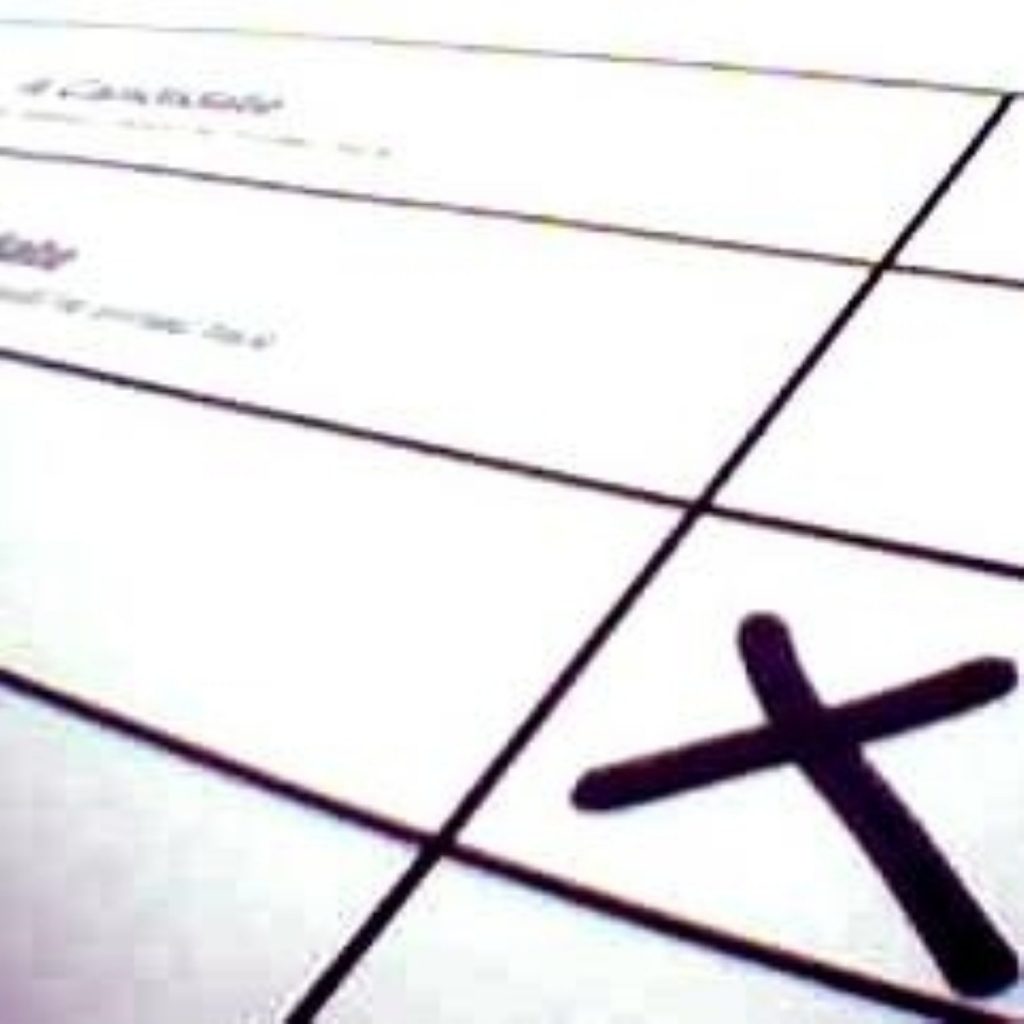Parties could get 60p a vote from taxpayers
Taxpayers could end up paying political parties 60p for every vote they receive, under new proposals from Hayden Phillips.
The former senior civil servant is examining the funding of political parties in the wake of the cash-for-honours scandal in which parties were accused of nominating wealthy backers for peerages in return for loans.
He has written to political parties to outline his suggestion that parties should receive 60p per vote in general elections and 30p for votes in the European, Scottish, Welsh and Northern Ireland elections.
Any party with at least two elected members of the House of Commons, devolved bodies or European parliament would be eligible for funding.


Under the results of the last election, Labour would have received £7.4 million, the Tories £6.8 million and the Liberal Democrats £4.5 million.
The funding would be in addition to the Short money which helps opposition parties fund their front benchers.
The Conservatives had backed a limit of individual donations, which was opposed by Labour which receives large contributions from trade unions.
It is thought the Conservatives and the Liberal Democrats are less than enthusiastic about the plans, with the Conservatives concerned the proposal would help Labour recover from their current precarious financial position.
Since the election of David Cameron as leader, the Conservatives are thought to have increased donations to the party and, combined with last week’s sale of the former headquarters for £30 million, they are in a much stronger financial position.
Electoral reform campaigners Unlock Democracy are also opposed to the scheme. Director Peter Facey said: “Offering political parties grants on a money-per-vote basis does nothing to encourage political parties to actively engage with the public.
“The first past the post electoral system, which effectively discourages votes for smaller parties would distort the funding mechanism, ensuring that incumbents would be given an unacceptable level of protection through state support.”
However, Sir Hayden is thought to believe the system would encourage parties not to focus only on marginal seats and would give them an incentive to campaign vigorously even in safe seats.









